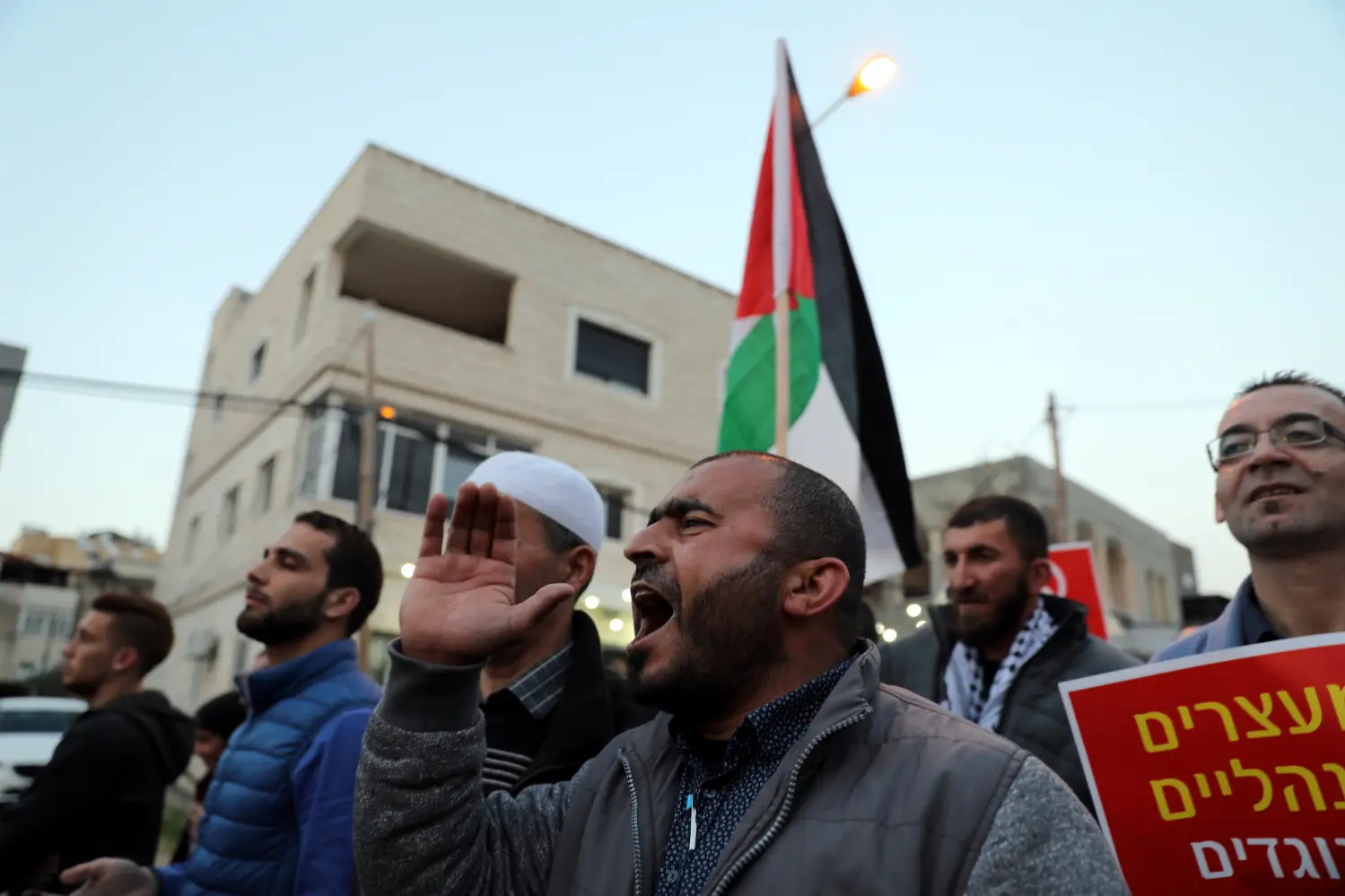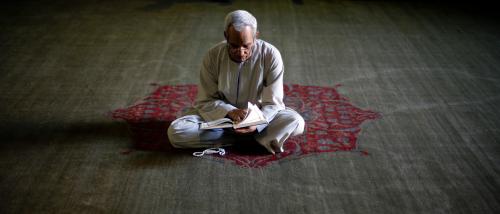With the aim of rethinking assumptions on Islam and politics in light of the wide-ranging developments of the past five years, Brookings brought together scholars of Islamism along with Islamist activists and leaders from eight countries for a two-day meeting in Istanbul. Mainstream Islamists from the across the Middle East as well Pakistan, Indonesia, and Malaysia were represented, allowing for a more comparative approach. The fascinating discussions – and, at times, considerable disagreements – covered the role of elections as a means of change, the use of violence, what it means to be an “Islamist,” and whether ISIS and its ilk present a long-term threat to the Muslim Brotherhood’s “school” of thought. This meeting was held by the Project on U.S. Relations with the Islamic World as part of the two-year initiative at Brookings on Rethinking Political Islam.
In Istanbul, we conducted a series of interviews with members and leaders of the Egyptian Muslim Brotherhood, Tunisia’s Ennahda, Pakistan’s Jamaat-e-Islami, Lebanon’s Gamaa Islamiya, and the Syrian Muslim Brotherhood. We asked each participant to discuss the state of his or her movement and reflect on lessons learned from the crises of the Arab Spring era, including the rise of ISIS, the Syrian civil war, and the 2013 military coup in Egypt. At times, the conversations moved into more speculative and theoretical territory, touching on political philosophy, Islamist governance, and the idea of an Islamic state. We plan to release these videos over the next few months as part of our “Islamists on Islamism today” series.
Our first interview is with Abdelouahad Motaouakal, head of the political section of Adl wal Ihsane’ (“Justice and Spirituality”), which, despite being Morocco’s largest Islamist movement, receives little attention from Western scholars. Motaouakal received his Masters in political science at Warwick University and his PhD from the University of Exeter. He is currently working on a book detailing the history of Adl wal Ihsane and translating a book by Sheikh Abdessalaam Yassine, Adl’s ideological and spiritual founder, into English.
In this first interview, Motaouakal begins by discussing the nature of Adl Wal Ihsane and how it differs from other Islamist groups in the region. He points to his movement’s struggle to open up space to operate within Morocco’s monarchy, where the constitution still ensures that real power remains in the hands of the king. Also discussed is the king’s historical title of amir al-mu’mineen, or “Commander of the Faithful” (a traditional honorific given to caliphs throughout history), and how this creates competing claims of legitimacy by the state and Islamists. Toward the end, we ask Motaouakal to reflect on the role and meaning of the “caliphate.”
The Brookings Institution is committed to quality, independence, and impact.
We are supported by a diverse array of funders. In line with our values and policies, each Brookings publication represents the sole views of its author(s).








Commentary
Islamists on Islamism: An interview with Abdelouahad Motaouakal, leader in Morocco’s Adl Wal Ihsane
October 21, 2016